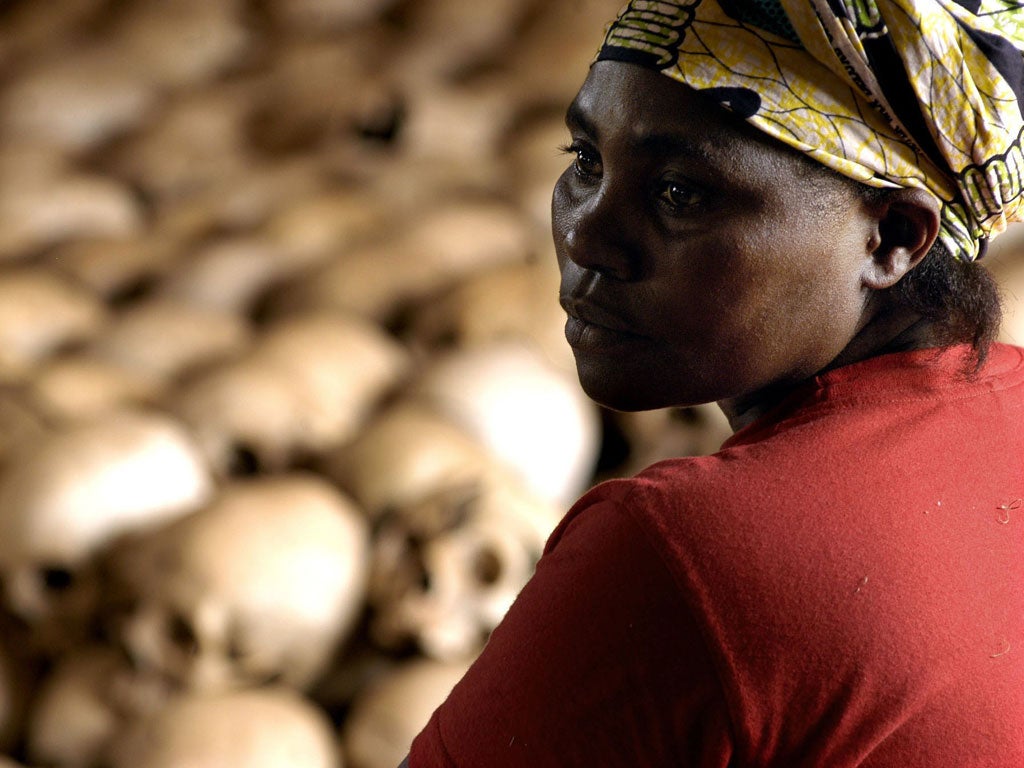Rwanda's dark past is no reason to withhold aid
A country trying to mend itself needs more, not less, help


There is something of the hokey-cokey about Britain's attitude to Rwanda at the moment. Aid was cut off in July. Then restored in September. Then cut again on Friday. In out. In out. Shake it all about. But there is more to this than incompetence or political swithering. It reflects one of the deepest dilemmas about the whole business of giving aid to poor people.
Our policy is to give aid to countries making efforts to improve democracy, root out corruption, promote peace and respect human rights. Aid works better in those conditions. Rwanda is – like Uganda and Ethiopia before – a "donor darling". It has lifted a million people out of poverty through good government and a clampdown on corruption. Schools, hospitals, roads and communications have been built and staffed. It will meet the Millennium Development Goals. It has shown that the cycle of African poverty can be broken when aid is combined with free-market principles.
But the architect of that success, Rwanda's president, Paul Kagame, has been accused of arming the M23 rebels in neighbouring Congo where violence has displaced almost half a million people, raising fears of a humanitarian crisis. So the UK has decided it must send an "unequivocal message" to Kagame to stop supporting the militias.
Yet stopping aid will also cause long-term social and economic damage. It could reverse the huge progress that has been made for the very poor. So the choice is not between right and wrong but between human rights and economic rights. Does harm to the former outweigh the good of the latter? And where is the balance between the short and the long term?
Rwanda was, less than 20 years ago, the scene of the biggest and most brutal genocide of modern times. Some 800,000 people were slaughtered in their homes because they belonged to the minority Tutsi tribe; 200,000 Hutus participated in the crime, backed by the state. Today, Kagame's style as a "developmental paternalist" may look to some like a repressive regime but it allows a power-sharing that might otherwise not be possible. There are also trade-offs between democracy and development: Zambia has a good peaceful democracy but a stagnant economy because political choices override economic ones. There is always a price to pay.
The same is true of peace and security. The M23 rebels are not just fighting the Congolese army but also the FDLR militias – the very Hutu killers who perpetrated the genocide and who routinely stage grenade attacks into Rwanda. The presence of rich mineral resources in the area complicates the motives of all factions. But Kagame is clearly not prepared to risk obeying high-minded instructions from the same Western policymakers who saw preparations for the 1994 genocide unfold and did nothing. Failure to prioritise state security, including downsizing the army, could more than undermine aid efforts.
There is another problem. Intelligence on the extent of Rwanda's support for M23 is based on a July UN report. Many donor nations cut aid after it. But the report is not so clear-cut as many suppose. Its analysts spent only a few days in the area and relied on the testimony of Congolese intelligence officials and army defectors whose impartiality is in doubt. They reported details of transport of military equipment that would have been technically impossible and military training at a place that turns out not to be a barracks but a military hospital. The report is insufficient if not inadequate.
Cheap-shot critics of Britain's largely excellent aid programme may yet see the balance swing back in favour of aid to Rwanda.

Join our commenting forum
Join thought-provoking conversations, follow other Independent readers and see their replies